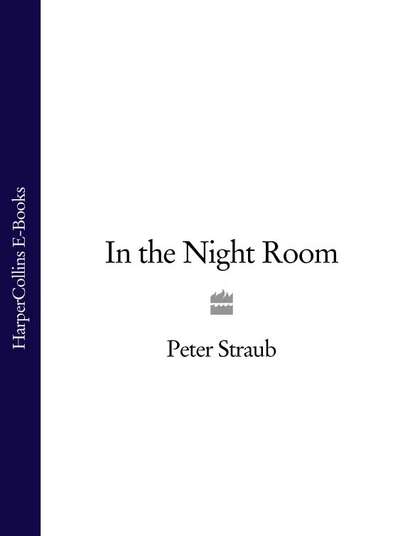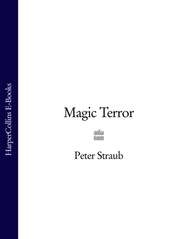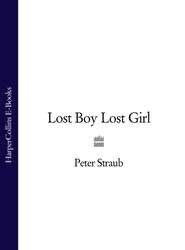По всем вопросам обращайтесь на: info@litportal.ru
(©) 2003-2024.
✖
In the Night Room
Автор
Год написания книги
2018
Настройки чтения
Размер шрифта
Высота строк
Поля
Tim Underhill
After adding the date beneath this inscription, he handed the book, still opened to the title page, to Kohle, who was waiting to receive it like a child, both hands out. Gimme gimme gimme. He yanked the book from Underhill’s hands, turned it around, and dipped his head toward the inscription. Odd, irregular white-gray streaks ran through the thick black pelt on the top of his head. When he snapped his head back up, his eyes held a dull, flat glare, and the skin at the corners of his mouth looked wrinkled and dark with grease.
‘What happened to “I yam what I yam”?’
‘I’m not doing so well this morning, but I don’t think I ever put that in a book,’ Tim said.
‘Oh yes, you did. That cop, Esterhaz, says it in The Divided Man. “I yam what I yam.” Right at the beginning, when he’s hungover and getting out of bed. Just before he sees the dead people marching around.’
At his worst moments, Hal Esterhaz, an alcoholic homicide detective in Tim’s second novel, had seen an army of the dead trudging aimlessly through the streets. He had not once, however, quoted Popeye.
‘I see you don’t believe me,’ Kohle said. ‘No wonder, stupid me—you can’t, because you don’t know. Okay, go ahead, sign the other books, you probably got things you want to do.’
Tim removed the second book from the pile and opened it to the title page. He looked back at Jasper Dan Kohle and found that he could not resist. ‘I don’t know what, exactly?’
‘Mr Underhill,’ Kohle said. ‘Tim. Let me say this, Tim. And I’m saying this although I know that you will have precisely no idea at all what I’m talking about, because that is guaranteed one hundred percent certain. So first let me ask you: do you have any idea at all why a guy like me would want to collect twenty copies of the same book? A hundred copies, if I had all the money in the world, a likely story, thank you very much?’
‘As an investment?’ Tim took his eyes off Kohle long enough to sign the second book and pick up the third.
Kohle went through a savage parody of yawning. ‘I don’t even live in this neighborhood. But I saw you doing your crossword puzzle, and I let my whaddayacallit, my joie de vivre, get the better of me, and the next thing I know, I’m spending a whole lot more money than I should on your new book. Which to tell you the truth is a little lightweight, not to mention kind of rushed at the end.’
‘Glad you liked it,’ Tim said.
‘So why do I want fifteen, twenty copies of a book that isn’t really all that hot, if you don’t mind my saying so?’
‘That was my question, yes.’ Tim pushed the last two books across the table.
‘Listen up now, here it comes.’ He leaned over and cupped his mouth with his hands, as April had done. ‘One of them might be the real book.’
He pulled the three copies of Underhill’s novel into the circle of his arms. ‘What, you ask, is the real book? The one you were supposed to write, only you screwed it up. Authors think every copy of a book is the same, but they’re not. Every time a book goes through the presses, two, three, copies of the real book come out. That’s the one you wanted to write when you started out, with everything perfect, no mistakes, nothing dumb, and all the dialogue and the details exactly right. People like me, that’s what we’re looking for. Investment? Don’t make me laugh. It’s the reverse of an investment. Once you find a real book, sell it to someone? Give me a break.’
‘You’re out of your mind,’ Tim said.
Kohle raised his hands chest-high in exasperation. ‘You guys are all the same. Ninety percent of the time, you’re just making things up. You act like a bunch of lazy, irresponsible gods. It wouldn’t be so bad if you weren’t basically deaf and blind, too. You don’t listen.’
‘What are you talking about?’ Tim asked, unsettled by the sudden reappearance on his mental screen of his sister, April.
‘If you paid more attention, your real books wouldn’t be all that different from the ones you wrote.’
Kohle seemed wetter than he had been earlier. Greasy moisture covered his sunken cheeks. His filthy sweatshirt was on the verge of disintegration.
‘Jasper, I signed your books, and now I’m just about through with this conversation. But if these “real” books exist, how come no one ever showed me one?’
‘Authors can’t see them,’ Kohle said. ‘I can’t imagine what the sight of a real book would do to one of you people—total meltdown, I suppose. Most people never get so much as a glimpse at a real book. The collectors manage to scoop ’em up almost as soon as they come out. Once in a blue moon, a reviewer gets a copy. That can be pretty funny. The reviewer flips out over some book that’s a piece of crap, and everyone wonders if he lost his mind. Come to think of it, that happened to one of your books.’
‘One of my books was an overpraised piece of crap?’
‘Yeah, imagine that.’
Smiling, Jasper Dan Kohle turned his head and watched rain bounce off the roofs of the cars inching down West Broadway.
‘You didn’t happen to look through that window and see me eating breakfast in here. You didn’t just want me to sign a couple of books. Are you even a real collector?’
‘I collect a lot of things,’ Kohle said, amused.
‘Why are you here, Jasper? If that’s your name.’
‘Don’t worry about my name, Mr Big-Time Author. Mr Fifty-five Grand Street.’ In his dark, greasy face, the yellow teeth crowded his mouth. ‘I yam what I yam, and that’s what I yam.’ He pushed the books into the bag, pulled the wet hood over his head, and rushed through the door. Tim watched him vanish into the gray street. This hostile being was walking away with samples of his handwriting. Tim felt a flicker of disquiet, as if his signature bore his DNA.
8 (#ulink_e7ce87b0-1b2c-55f7-986e-0f9b3dddd388)
The author of In the Night Room was grateful for the medal it had won and the money it had earned, but she had written her third book as an act of rescue, not a means of achieving recognition. Thanks to James’s various life insurance policies, plus the fortune the Baltic Group had paid him in income and bonuses during his lifetime, money, very much a concern during the writing of Fairy Ring and The Golden Mountain, had ceased to be an issue. Her husband’s death payments had underwritten the months she had spent in western Massachusetts under the care of Dr Bollis and the quiet attendants never less than determined to give their charges what they needed: a comforting book, a comforting hug, or a comforting jab in the upper arm with a needle. Back then, nothing but bloody shreds seemed to remain of the once-familiar Willy. The bloody shreds were usually too limp and wounded to think about reassembling themselves. Her conscious life, the life of her spirit, had been murdered along with her family. For her first two months at the Institute, Willy had groped in darkness at the bottom of a well, grateful for the absence of light, too depleted to commit suicide. She was not wounded, she was a wound.
In Massachusetts, she had no visitors but visiting phantoms.
One day she walked into the dayroom, saw a familiar shape occupying a folding chair, looked more closely as fear moved toward her empty heart, and froze in shock at the reappearance in her life of Tee Tee Rowley, a flinty, sharp-fisted girl who, as ever, held her ground, scowling at Willy.
She had come from the Millhaven Foundlings’ Shelter, established in 1918 and everywhere referred to as either ‘the Children’s Home’ or, as its familiars knew it, ‘the Block.’ All in all, Willy had spent something like two and a half years ‘on the Block.’
Tee Tee Rowley, who stood five feet tall and weighed perhaps eighty pounds, responded to challenges by squaring up to them and suggesting her readiness to do anything necessary to instill respect in her challenger. Unlike some of her peers, Tee Tee did not default to crazed violence at the first sign of difficulty, but the willingness to employ craziness and destruction spoke from her posture, her eyes, the set of her mouth.
That of all her acquaintances from the Block the one to pay a phantom call should have been Tee Tee made perfect sense to Willy. It was to Tee Tee that Willy, who had begun to enjoy a small reputation as a storyteller, had told the best story of her young life.
From the first, Willy Bryce half-sensed, halfsuspected, and, she hoped, half-understood that she had not fully explored the dimensions of the inner life awakened by the books she devoured in the Block’s library: that it contained some element, some enigmatic quality that was of immense importance to her. Deep within, this unknown element shone.
Willy’s discovery of what the unknown element contained had led Tee Tee’s shade to appear. Willy had discovered how to save her own life.
This was how it happened: one day, tough, ten-year-old Tee Tee Rowley materialized before eight-year-old Willy Bryce in the second-floor lounge and asked her what the fuck she thought she was doing there anyhow, you fucking piece of shit. Instead of backing away and slinking off, Willy said, Listen to this, Tee Tee. And told her a story that almost instantly drew half a dozen other girls to that side of the lounge.
If she had stopped to think about what she was doing, doing it would have been impossible. But she did not have to think about the odd little tale. It spun itself out of the unknown element and gave her the right words, one after the other. She launched into the first real story of her life.
—When Little Howie Small stood before the ancient wizard and wiped the tears from his eyes, the first thing he noticed was that a sharp-eyed bird was peering out at him from within the wizard’s enormous beard.
And an entire adventure followed, a story involving an eagle and a bear and a furious river and a prince who rescued his princess-to-be with the aid of a walnut discovered by the bird who had been hiding in the wizard’s beard. The whole thing just rolled off Willy’s tongue as if it had all been written out in advance. Whenever she needed some new information or a fresh development, the perfect thing arrived at the proper moment to be inserted into a blank space exactly its size and shape.
—That was a real good story, said an astonished Tee Tee. You got any more like that?
—Tomorrow, Willy said.
Tomorrow came, and the day after tomorrow, and the day after that, and on each of them, day after day until she walked out of the Block for good, Willy entertained the Tee Tees and Raylettes and Georginas with episodes from the adventurous life of Little Howie Small. As far as she knew, the little person within her who had come into her own, the secret Willy, always told the truth. She was like Scheherazade, except at the time she was not fighting for her life.
That came twenty-nine years later, after her companion on the Block began calling on her in Massachusetts.
—You’re writing again, Willy? asked Dr Bollis. I think that’s excellent news. Is it a story, or is it about yourself ?
—You don’t know anything about fiction, Willy told him.
Dr Bollis smiled at her.—I do know how important it is to you. Will this one be like your others, or are you going to try something new?









